
https://slides.com/xergioalex

LET'S BUILD TOGETHER
http://rocka.co

xergioalex
Sergio A. Florez
TECH LEAD && FULL STACK DEVELOPER





What is Go?



LET'S BUILD TOGETHER


LET'S BUILD TOGETHER

What is Go?
Open Source



+


LET'S BUILD TOGETHER

What is Go?

go build









Compiled (Cross-Compile)
&& Multiplatform


LET'S BUILD TOGETHER

What is Go?
C Sintax
C Sintax (Interpreted language styles)
package main
import "fmt"
func main () {
fmt.Printf("Hello World")
}



LET'S BUILD TOGETHER

What is Go?
C Sintax
C Sintax (Interpreted language styles)
package main
import "fmt"
func main () {
fmt.Printf("Hello World")
}


Why Go?



LET'S BUILD TOGETHER


LET'S BUILD TOGETHER

Why Go?
Easy To Learn



Why Go?
Modern language
Designed thinking on modern systems that needs:

- High performance
- High concurrency


LET'S BUILD TOGETHER

Why Go?
The Standard Library
- net/http

- database/sql/driver
- encoding
- testing
- encryption


LET'S BUILD TOGETHER

Why Go?
Gopher Pet :3








LET'S BUILD TOGETHER

History

Go started in 2007 by
- Robert Griesemer (JVM, V8 Js)
- Rob Pike (UNIX, UTF-8 )
- Khen Thompson
(B, C, UNIX, UTF-8)


LET'S BUILD TOGETHER



LET'S BUILD TOGETHER

History
- Go was released by Google as an open source project in 2009
- Version 1.0 was released in 2012.
- Go team didn't seek to replace Java, C ++ or any other language, but instead devoted themselves to developing a system that would give them many advantages they were looking for.



LET'S BUILD TOGETHER

Who use Go?

- Canonical
- CloudFlre
- Uber
- Disqus
- Digital Ocean
- Facebook
- Netflix



LET'S BUILD TOGETHER

Thrends


Most Wanted
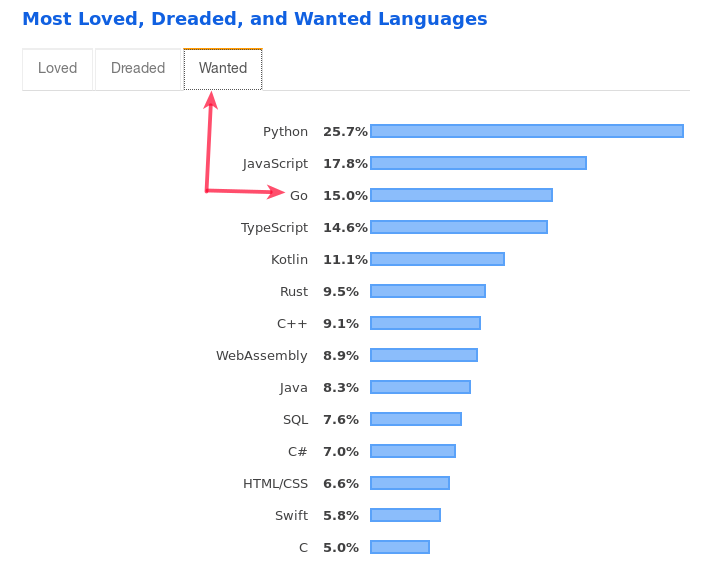







CODING TIME


LET'S BUILD TOGETHER

Linux Installation
$ sudo add-apt-repository ppa:longsleep/golang-backports
$ sudo apt-get update
$ sudo apt-get install golang-go$ go version
go version go1.12 linux/amd64

LET'S BUILD TOGETHER

DEMO
Hello World
package main
import "fmt"
func main () {
fmt.Printf("Hello World")
}


LET'S BUILD TOGETHER

DEMO
Standard input
package main
import "fmt"
func main () {
var name string
fmt.Print("Please type your name: ")
fmt.Scanf("%s", &name)
fmt.Printf("Welcome %s to Go Lang", name)
}


LET'S BUILD TOGETHER

DEMO
Declarations
var name string
var name string = "Name test"
lastname := "Lastname test"
var number = 100
var number1 int
var (
a = 1
b = 2
c = 3
)
DEMO
Types
bool
string
int int8 int16 int32 int64
uint uint8 uint16 uint32 uint64 uintptr
byte // alias for uint8
rune // alias for int32
// represents a Unicode code point
float32 float64
complex64 complex128
DEMO
Functions 01
func test() bool {
return true
}
func test1() int32 {
return 5
}
func test1(myVar1 int32, myVar2 float32, myVar3 string) int32 {
// ...
return 1000
}FUNC

DEMO
Functions 02
a, b, c := getVariables()
func getVariables() (int a, int, int) {
return 1, 2, 3
}
// ...
val1, val2, val3, val4 = calc(num1, num2)
func calc(a int32, b int32) (int32, int32, int32, float32) {
return a + b, a - b, a * b, float32(a) / float32(b)
}
DEMO
Loops 01
# Type 1
for i := 0; i < 5; i++ {
fmt.Println("FOR: ", i)
}
# Type 2
c:=100
for ; c > 0; {
c -= 10
}

DEMO
Loops 02
# Type 3
c:=100
for c > 0 {
c -= 10
}
# Type 4
s := 1000
for {
s -= 1
if s == 0 {
break
}
}

LET'S BUILD TOGETHER

DEMO
Conditionals
var number = 0
fmt.Print("Typ a number: ")
fmt.Scanf("%d", &number)
if number %2 == 0 {
fmt.Println("Even number")
} else {
fmt.Println("Odd number")
}
DEMO
Switch 01
switch number {
case 1:
fmt.Println("The number is 1")
default:
fmt.Println("The number isnt 1")
}
//...
switch {
case number%2 == 0:
fmt.Println("The number is even")
default:
fmt.Println("The number is odd")
}

DEMO
Switch 02
switch {
case number == 2:
fmt.Println("The number is 2")
fallthrough
case number%2 == 0:
fmt.Println("The number is even")
default:
fmt.Println("The number is odd")
}fallthrough

DEMO
Arrays 01
var arr1 [2]string
arr1[0] = "value1"
arr1[1] = "value2"
// arr1[2] = "value2" // This will
//throw exception
fmt.Println(arr1)
DEMO
Arrays 02
b := [5]int{1, 2, 3, 4, 5}
fmt.Println("My array:", b)
DEMO
Arrays 03
var twoD [2][3]int
for i := 0; i < 2; i++ {
for j := 0; j < 3; j++ {
twoD[i][j] = i + j
}
}
fmt.Println("2d: ", twoD)
DEMO
Maps 01
mapTest := make(map[string] int)
mapTest["key1"] = 1
mapTest["key2"] = 100
fmt.Println(mapTest)
DEMO
Maps 02
mapTest := map[string] int {
"Juan": 18,
"Sergio": 24,
"Julian": 30,
}
delete(mapTest, "Juan")
fmt.Println(mapTest)
DEMO
Structs 01
type Course struct {
Name string
Slug string
Skills [] string
}
myCourse := Course{
Name: "Go",
Slug: "go",
Skills: []string{"1", "2"}
}
DEMO
Structs 02
type Course struct {
Name string
Slug string
Skills [] string
}
myCourse := new(Course)
myCourse.Name = "Go2"
myCourse.Slug = "go2"
myCourse.Skills = []string{"3", "4"}
DEMO
Methods
type Course struct {
Name string
Slug string
Skills [] string
}
func (p Course) Subscribe (name string) {
fmt.Printf("The person %s has subscribed to %s course\n", name, p.Name)
}
myCourse := Course{ Name: "Go", Slug: "go", Skills: []string{"1", "2"} }
myCourse.Subscribe("XergioAleX")
fmt.Println(myCourse)
DEMO
Interfaces
type Shape interface {
Area() float64
Perimeter() float64
}
type Rect struct {
width float64
height float64
}
func (r Rect) Area() float64 {
return r.width + r.height
}
func (r Rect) Perimeter() float64 {
return 2 * (r.width + r.height)
}
var s Shape
s = Rect{5.0, 4.0}
fmt.Print("Area", s.Area())
fmt.Print("Perimeter", s.Perimeter())
DEMO
Defer 01
func deferTest () {
fmt.Println("The main function finish")
}
func main() {
defer deferTest() // defer allow do something after the current function context finish
fmt.Println("Hello world")
}


DEMO
Defer 02
func orderDefer() { // Defers works as stack
fmt.Println("Start")
defer defered("1")
defer defered("2")
defer defered("3")
defer defered("4")
defer defered("5")
fmt.Println("End")
}
orderDefer()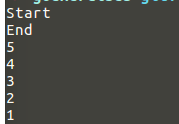

DEMO
Panic / Errors
func main() {
number, err := Div(50, 0)
if err != nil {
panic(err)
}
fmt.Println(number)
}func Div(a float32, b float32) (float32, error) {
if b == 0 {
return 0, errors.New("Division by 0")
}
return a / 2
}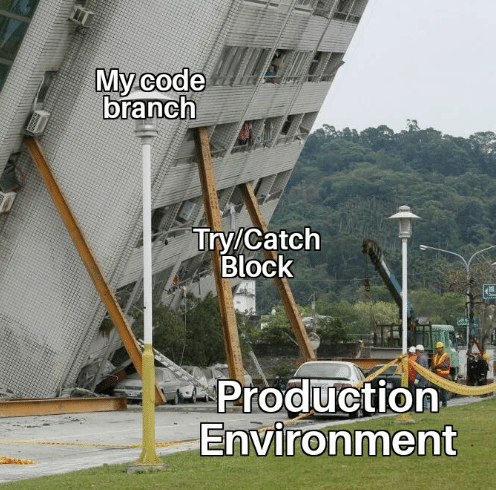

DEMO
Pointers
func main() {
a := 100
var b * int
b = &a
fmt.Println(a, *b)
fmt.Println(&a, b)
*c = 10
fmt.Println(a, *b)
fmt.Println(&a, b)
}
DEMO
GoRoutines 01
func helloGo(index int) {
fmt.Printf("Hello, the index is #%d\n", index)
}
func forGo(n int, text string) {
for i := 0; i < n; i++ {
helloGo(i)
}
}
func main () {
forGo(500)
}
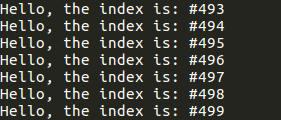
...

DEMO
Go Routine 02
func helloGo(index int) {
fmt.Printf("Hello, i am a goroutine #%d\n", index)
}
func forGo(n int, text string) {
for i := 0; i < n; i++ {
helloGo(i)
}
}
func main () {
forGo(500)
}go
time.Sleep(1000 * time.Millisecond);
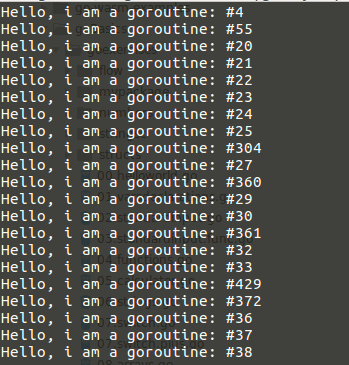

DEMO
Channels
ch := make(chan string)
go func () {
defer close(ch)
ch <- "Hi Channel"
}()
fmt.Println(<- ch)
DEMO
Server
package main
import (
"net/http"
"io"
)
func handler (w http.ResponseWriter, r *http.Request) {
io.WriteString(w, "Hola Servidor Go!")
}
func main () {
http.HandleFunc("/", handler)
http.ListenAndServe(":8000", nil)
}
DEMO
Http Client
import "net/http"
type Post struct {
UserID int `json:"userId"`
ID int `json:"id"`
Title string `json:"title"`
Body string `json:"body"`
}
func main () {
var client = &http.Client{ Timeout: 10 * time.Second }
url := "http://jsonplaceholder.typicode.com/posts"
resp, err := client.Get(url)
//...
var post [] Post
json.NewDecoder(resp.Body).Decode(&post)
fmt.Println(len(post))
fmt.Println(post[0])
}
DEMO
Files
package main
import (
"fmt"
"io/ioutil"
"path"
"runtime"
)
func main() {
// Get information about program execution
_, filename, _, ok := runtime.Caller(0)
// Validate execution
if !ok {
panic("No caller information")
}
/* Read a file */
data, err := ioutil.ReadFile(path.Dir(filename) + "/test.txt")
// Stop execution if error any error happen
if err != nil {
panic(err)
}
// Print file content
fmt.Println(string(data))
}

LET'S BUILD TOGETHER

I Know Go


Frameworks
Most used






LET'S BUILD TOGETHER

Libraries
Most Used





LET'S BUILD TOGETHER

> Ebiten
Simple 2D game library



LET'S BUILD TOGETHER

BONUS






LET'S BUILD TOGETHER

Links



LET'S BUILD TOGETHER

Friends of Go




LET'S BUILD TOGETHER

CodeLyTV
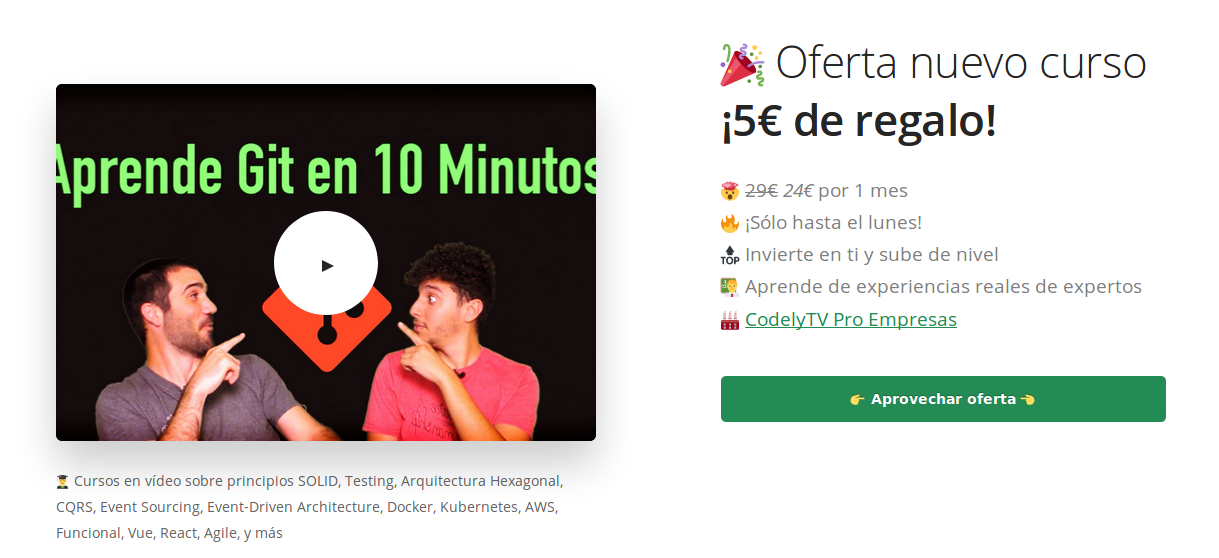



LET'S BUILD TOGETHER

Platzi


FINAL BONUS
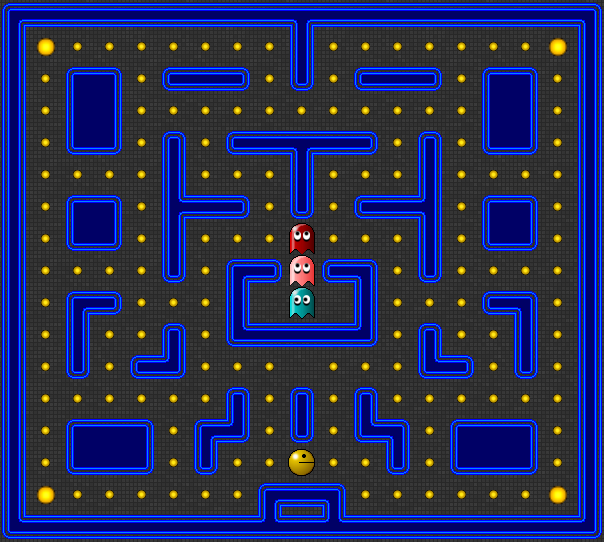
LET'S BUILD TOGETHER
http://rocka.co

xergioalex
Sergio A. Florez
TECH LEAD && FULL STACK DEVELOPER



